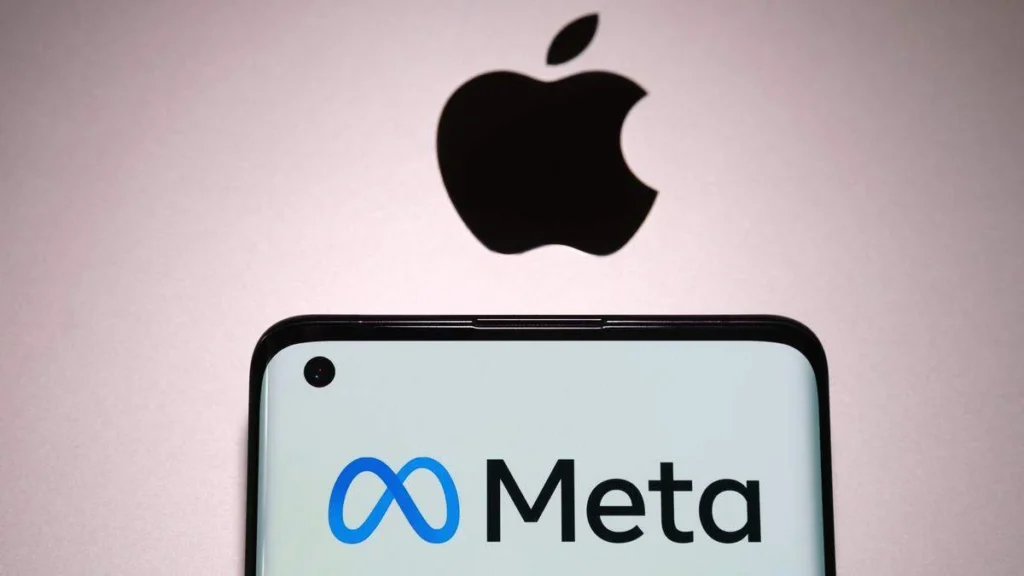
The European Commission (EU) has taken a significant antitrust decision against two tech giants, Apple and Meta, by fining them €500 million and €200 million, respectively, for violating the newly enacted Digital Markets Act (DMA). This landmark decision is the first financial penalties issued under the DMA, thereby highlighting the EU’s commitment to enforcing digital competition rules across the European markets.
The DMA, which represents a comprehensive EU framework, was designed to create fair digital markets by preventing dominant tech companies from monopolizing the European digital market. It establishes guidelines that are aimed at enhancing consumer and business choices while ensuring competitive markets.
As such, the commission’s investigation into both companies that was opened in March 2024 followed extensive dialogue that allowed the tech giants to present their views and arguments before final decisions were reached.
For Apple, the EU found the tech company in violation of its anti-steering obligations under the DMA. This requires that app developers distributing through Apple’s App Store should be able to inform consumers about alternative offers outside the App store, steer them to those offers, and allow them to make purchases.
According to the commission’s investigation, Apple imposed restrictions that prevented app developers from fully benefiting from alternative distribution channels while also hindering consumers from accessing potentially cheaper offers. As a result, the commission determined that Apple’s restrictions are neither objectively necessary nor proportionate, and as such, must now eliminate both technical and commercial barriers that restrict developers from steering users to other channels.
For Meta, it was due to the non-compliant nature of a model that was released in November 2023. Meta introduced a binary “Consent or Pay” advertising model for its Facebook and Instagram users in the EU. Under this model, users could either consent to personal data combination for personalized advertising or pay a monthly subscription for an ad-free experience.
The commission found this approach non-compliant with the DMA, as it failed to provide users with a specific choice to opt for a service that uses less of their personal data while remaining equivalent to the personalized ads service.
The investigation on Meta concluded that its binary model prevented users from expressing their right to freely consent to the use of their personal data across its various services for personalized advertisements – as the DMA requires that gatekeepers must seek users’ consent for combining their personal data between services, and those who don’t consent must have equal access to a less personalized alternative.
Henna Virkkunen, Executive Vice-President of the EU for Tech Sovereignty, Security and Democracy says: “Enabling free business and consumer choice is at the core of the rules laid down in the Digital Markets Act. This includes ensuring that citizens have full control over when and how their data is used online, and businesses can freely communicate with their own customers.”
“The decisions adopted today find that both Apple and Meta have taken away this free choice from their users and are required to change their behaviour. We have a duty to protect the rights of citizens and innovative businesses in Europe and I am fully committed to this objective.”
However, this €200 million fine specifically relates to the period between March and November 2024, during which EU users were solely presented with this binary choice. In November 2024, Meta then introduced a third option that allowed Facebook and Instagram users in Europe to see fewer personalized ads without paying for an ad-free experience, which the EU says they are currently evaluating for its compliance with the DMA.
Both tech giants criticized the EU, as they have expressed strong disagreements with the commission’s findings and decisions.
In a statement, Apple said, “Today’s announcements are yet another example of the European Commission unfairly targeting Apple in a series of decisions that are bad for the privacy and security of our users, bad for products, and force us to give away our technology for free.” For Apple, this fine comes after the tech giant was ordered earlier this year to open up its iOS ecosystem to ensure interoperability under the new DMA rules.
Likewise, Joel Kaplan, Meta’s Chief Global Affairs Officer, responded with: “The European Commission is attempting to handicap successful American businesses while allowing Chinese and European companies to operate under different standards.”
“This isn’t just about a fine; the Commission forcing us to change our business model effectively imposes a multi-billion-dollar tariff on Meta while requiring us to offer an inferior service. And by unfairly restricting personalized advertising the European Commission is also hurting European businesses and economies,” Kaplan adds.
The respective fines placed on each tech giant signifies a serious escalation in the EU’s efforts to regulate their digital markets, which are likely to further influence global approaches to tech regulations.
However, these efforts may also heighten tensions between the EU and President Trump’s administration, as he has frequently criticized the economic bloc for its treatment of American tech businesses.

